I met Eva Doumbia in New Orleans, Louisiana in March 2019 (as documented in my HowlRound essay “New to New Orleans”), and over a glass of wine, she shared plans for her upcoming creation, Autophagies, which would tell the story of various foods’ interconnected histories of dominance and oppression spanning back to colonialism and the transatlantic slave trade. The performance would feature a chef cooking a meal on stage, live music, dance, documentary video, and spoken “testimony” from actors posing as participants in the ceremony. The cast would feature six performers: Eva as “mistress of ceremonies,” the chef, one musician, one dancer, and two actors. Formally, it would be somewhere between documentary theatre and ritual, with bifrontal seating and a shared communal meal at the end of the performance. Eva was conducting research and gathering inspiration for the show while in New Orleans, and she asked if I would be interested in translating the eventual text from French into English and producing the American tour. I was intrigued and accepted her offer.
On Producing an International Tour During a Global Pandemic
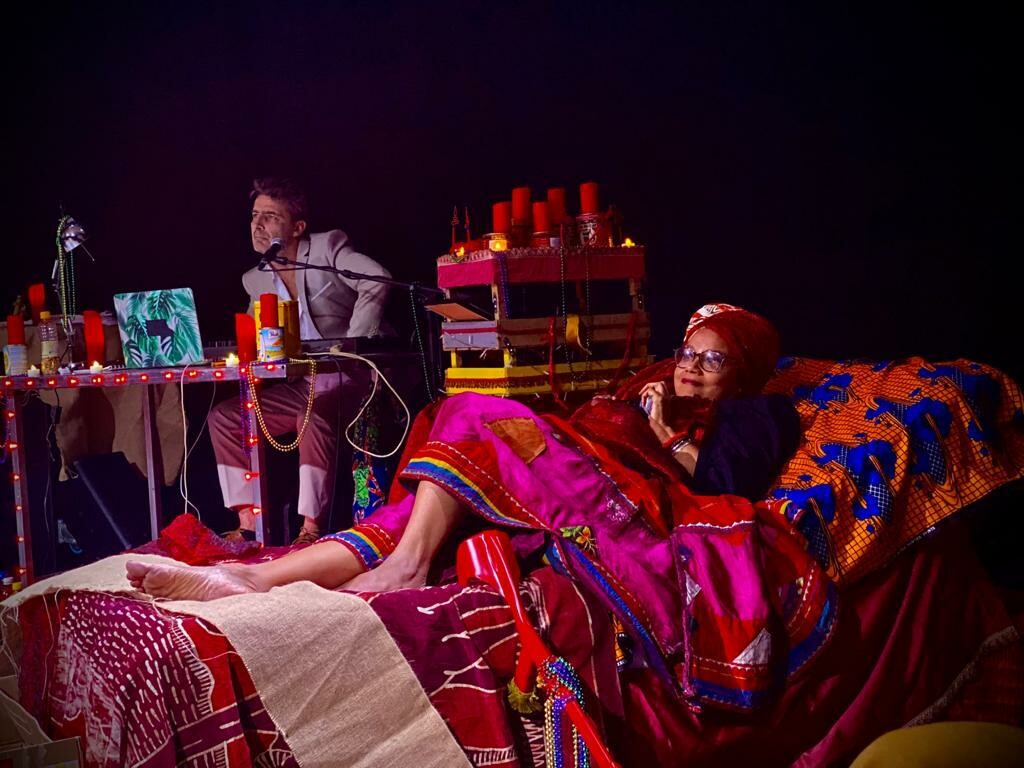
Lionel Elian and Eva Doumbia in Autophagies (Self-Eaters) by Armand Gauz and Eva Doumbia at the Invisible Dog Art Center. Translated by Amelia Parenteau. Directed by Eva Doumbia. Costume and scenic design by Sylvain Wavrant. Lighting design by Stéphane Babi Aubert. Original music by Lionel Elian. Choreography by Massidi Adiatou. Video design by Sandrine Reisdorffer. Sound design by Cédric Moglia. Stage management by Loïc Jouanjan. Photo by Argenis Apolinario.
As I got deeper into this project, I learned that explaining Autophagies requires many levels of people’s attention. Ready? The title literally translates to Self-Eaters, which is a scientific term in French that refers to the way cells maintain homeostasis, but in this context, it alludes to the ways we’re all complicit in exploitative global food systems. Okay, next. Let me introduce Eva Doumbia, an acclaimed mid-career theatre artist in France whose name is unfamiliar to most audiences in the United States. Then, since this is a play in translation, let’s reassure anglophone audiences it will, indeed, be performed in English. Still with me? Now, imagine this: a unique theatrical form that requires explanation even in France, a “documentary eucharist” if you will. The subject matter is complex, historical, and heavy. The meal being served to the audience at the end of the show, mafé, is a traditional West African peanut-based stew. Peanut allergies beware, but yes, it is vegan! Bon.
On the original timeline, the French text—a collaboration between Eva and Ivorian author Gauz—would be completed in December 2019, and the French version was scheduled to premiere at the Avignon Festival in July 2020. Eva had already secured support from the Cultural Services of the French Embassy and Felicia McCarren at Tulane University, and we were planning a tour in the United States in fall 2020 or spring 2021. Eva was supposed to return to New Orleans for a residency in April 2020 to continue her research, engage with university students, and cast an English-speaking actress to replace her on stage. I planned to attend the premiere at Avignon, and we scheduled a week of rehearsal in France prior to the tour of the United States. I began conversations with potential partners in New York City; Atlanta, Georgia; and New Orleans, leveraging my network of theatre contacts and cold emailing several artistic directors of venues I thought might be a good fit.
Despite all odds, the show opened and played for a handful of performances before its run was cut short by a team member’s COVID exposure.
When the COVID-19 pandemic hit in March 2020, we reorganized. First, we imagined a New Orleans residency for Eva, the musician, and the chef at some point in November 2020 to February 2021. This was later pushed to April 2021. A 12 February 2021 note from my production journal: “Currently borders are closed until mid-March at least.” Amidst the absolute unknowingness of the pandemic, it felt absurd to be making these plans and putting dates on the calendar, especially as we were in conversation with employees of the French Cultural Services who were recounting the backlog of visa applications piled up at the embassies. The Avignon premiere of the French version was rescheduled to July 2021, and we subsequently reorganized for a United States premiere in 2022.
During a February 2021 research trip in Abidjan, Côte d’Ivoire, Eva was struck by a car and had to be hospitalized for two months to recover. Sitting was out of the question, so she directed many of the rehearsals leading up to the Avignon premiere in July 2021 lying down in a bed in the rehearsal room until she was strong enough to pace around on crutches. Despite all odds, the show opened and played for a handful of performances before its run was cut short by a team member’s COVID exposure. Everyone was sent into isolation, per festival protocol.
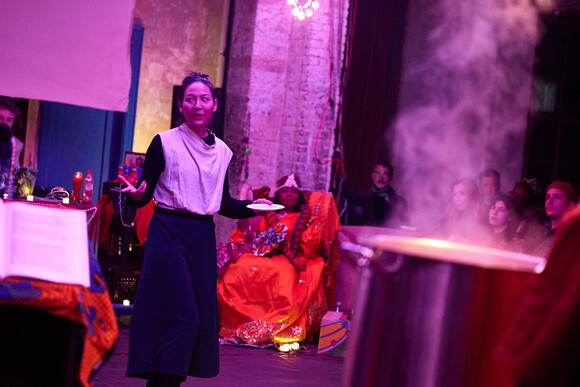
Angelica-Kiyomi Tisseyre and Karen-Kaia Livers in Autophagies (Self-Eaters) by Armand Gauz and Eva Doumbia at the Invisible Dog Art Center. Translated by Amelia Parenteau. Directed by Eva Doumbia. Costume and scenic design by Sylvain Wavrant. Lighting design by Stéphane Babi Aubert. Original music by Lionel Elian. Choreography by Massidi Adiatou. Video design by Sandrine Reisdorffer. Sound design by Cédric Moglia. Stage management by Loïc Jouanjan. Photo by Argenis Apolinario.
The show toured in France in fall 2021, the United States reopened its borders to European travelers in November of that year, and we made a new plan for Eva’s New Orleans residency to take place over three weeks in February-March 2022, with the goals of Eva working with students, casting a replacement for her role in the English-language version, conducting a line-by-line edit of the English translation, meeting with potential partners, and presenting a staged reading. Incredibly, this residency happened, and all these goals were met, although I was only able to be present for approximately one week because a recent death in the family had me out of state.
Marie-Gabrielle Grenier, artistic and audiovisual project manager of the Cultural Services of the French Embassy in New Orleans, kindly accompanied Eva in my absence to the partner meetings I had scheduled. Upon my return, Eva, French actress Olga Mouak, and I spent a nine-hour day meticulously poring over every word of my translation. Carol Bebelle, a steward of New Orleans culture and a co-founder of Ashé Cultural Arts Center, had graciously sent me a list of important contacts in the community, from restaurateurs to actors to Yoruba priestesses, from which Eva and I selected a short list of actors to invite to audition. Auditions took place in socially distanced Adirondack chairs in the back yard of the Alliance Française, a COVID precaution after a team member’s exposure.
As I set out on this journey, it was difficult to find specific guidance for independently producing an international tour.
It felt miraculous to witness the culminating staged reading of an excerpt from the English script at the Alliance Française in New Orleans, with Eva serving mafé herself to the delighted audience in attendance. Wheels were in motion for a 2023 premiere. Eva visited New York in July 2022 to meet with partners. The American actress and I spent ten days in Lyon and Elbeuf in France in October 2022 to observe the French version and rehearse the English one.
In February 2023, the English-language version of Autophagies (Self-Eaters) premiered at The Invisible Dog Art Center in Brooklyn, New York. It ran for six performances over four nights and then traveled to Ashé Cultural Arts Center in New Orleans, where it performed four times (one of which was a special bilingual matinee for francophone students) in March 2023. A ten-show run after four years of conversation and collaboration.
Why am I telling you all this? Not only because it’s an underdog theatre story for the ages, but also to pull back the curtain on one version of independently producing an international tour of a play in translation. Although I had prior experience self-producing my own plays and producing international work for theatres in the United States, as I set out on this journey, it was difficult to find specific guidance for independently producing an international tour. I hope this chronicling can be of service to those contemplating a similar venture.
Part of this production job was like any other venture. I sent so many emails, made so many phone calls.
If it’s difficult to get a production of a new play by a playwright based in the United States, it is nigh impossible to score one for a play in translation. Although a formal study of the number of plays in translation produced in the United States annually doesn’t exist (to my knowledge), the Theatre in Translation Network (TinT) has put together a representative repository dating back to 2003, which lists approximately two to five productions of plays in translation in the United States per year. Theatre in translation is the nichest of the niches in the United States. As a theatrical translator, if you want to see your translation produced, it’s all about creating opportunities.
Part of this production job was like any other venture. I sent so many emails, made so many phone calls. I set up the auditions for the New Orleans-based actress to replace Eva on stage. I wrote a press release to publicize the show in New Orleans and sent press materials to the New York press rep. I negotiated housing arrangements. I called upon the generosity of my network to source hard-to-find props, set pieces, and industrial-scale cooking equipment in New York and New Orleans. I scoured the internet and then Brooklyn for a plastic tub that was large enough to hold an adult human and sturdy enough to support his weight when standing on the (slightly pliable) edges. With the French company administrator, I bought ingredients in bulk for the chef, hauling a shopping trolley so loaded down I thought the wheels would pop off on my way back to the venue. My partner drove me all over the New Orleans metro area to source large quantities of palm oil. I sent everyone the next day’s schedule every night.
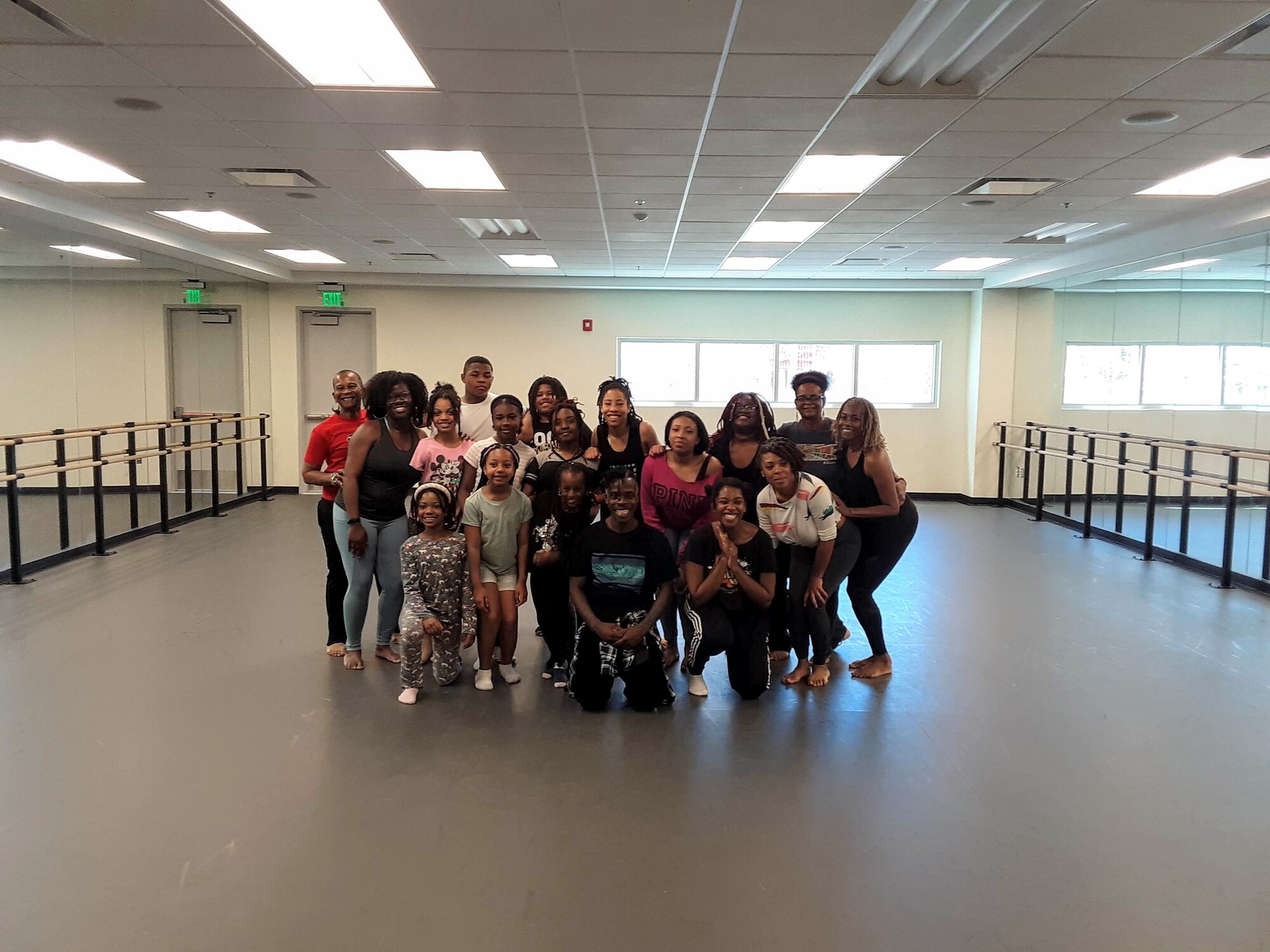
Massidi Adiatou (front center) and Olga Mouak (front center-right) with students following a coupé-décalé dance workshop at Tekrema Arts Center in New Orleans. Photo by Amelia Parenteau.
Surrounding the performances, it was important to Eva and company to have opportunities for community engagement. We were able to connect with several groups of students, which were some of my favorite moments from the tour. Eva visited one class at Columbia University and one at NYU, and students from NYU’s Production Lab attended one rehearsal. In New Orleans, Eva visited classes at the Lycée Français, École Bilingue, and Xavier University, and she gave a public talk at Dillard University. Chef Alexandre Bella Ola cooked a pop-up lunch at the historic Dooky Chase’s Restaurant, and choreographer Massidi Adiatou led a coupé décalé dance workshop at the Tekrema Arts Center in the Lower Ninth Ward.
Other parts of the job were particular to working with international artists. I interpreted for Eva as she was interviewed for NYU’s Office Hours series and Poppy Tooker’s Louisiana Eats! NPR show. I helped the French company administrator decipher vendor registration paperwork so they could be paid by the university partners we worked with. (A W-8BEN-E is much more detailed than a W9!) I helped with visa applications. I stayed up to date on COVID requirements for international travel. I hired a local actor to do a pre-recorded voice over for the English-language version, found a recording studio, and directed his voice work. I mediated script negotiations for the American actress, doing the cultural translation work of unpacking American racism for the French and French racism for the Americans.
What’s more, I was constantly interpreting, and not just for Eva, but for the tech team, who had specific technical questions. For the stage manager, who caught a cold and needed help at the pharmacy. For the chef, who required specific ingredients for his meals and needed to be able to communicate with the back-of-house staff at Dooky Chase. For the French producer, who needed help with a budget negotiation. For the musician, who needed help with the bus schedule.
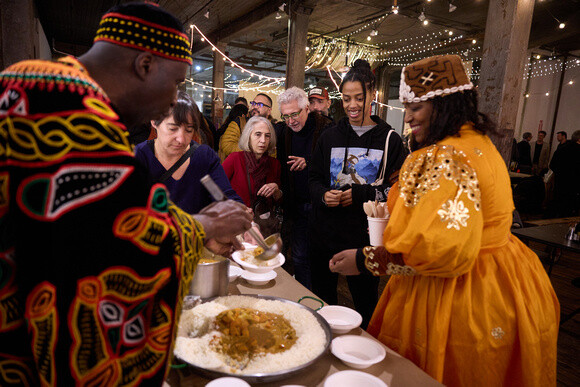
In terms of budget, this project received two rounds of FACE Contemporary Theatre grant funding and contributions from producing partners. The first FACE grant, awarded in 2019, was intended to cover a New Orleans residency for Eva in fall 2019 and an English-language performance in spring 2020. The second FACE grant, awarded in 2022, supported Eva’s New York trip in July 2022, the rehearsal trip to France in October 2022, and the performances in spring 2023. I want to express my enormous gratitude to Nicole Birmann-Bloom, a champion of this project from the start and an invaluable help at every step of this journey, particularly with the FACE grant process.
This story by the numbers: My email turns up 533 results for “Eva Doumbia.” I worked 196 billable hours (not including the rehearsal trip in France or the tour itself). And I earned $9,401.03 before taxes.
And what did I learn?
- Producing feels a lot like what I imagine parenting feels like. The tour experience was immersive. I am not someone who is usually tied to her phone, but for those three weeks I was on call 24/7.
- Being good at this job doesn’t mean saying “yes” to every request. Sometimes setting a boundary creates a more effective working relationship, and sometimes a nervous artist needs fewer options, not more.
- It means so much when someone says “thank you.”
- It’s as important to organize the end as it is the beginning. How will you clean up? Who will return all the things back from whence they came? How will you say goodbye?
- The endless swirl of possibilities will eventually crystallize into a plan. And that plan will change and change and change, and that’s okay.

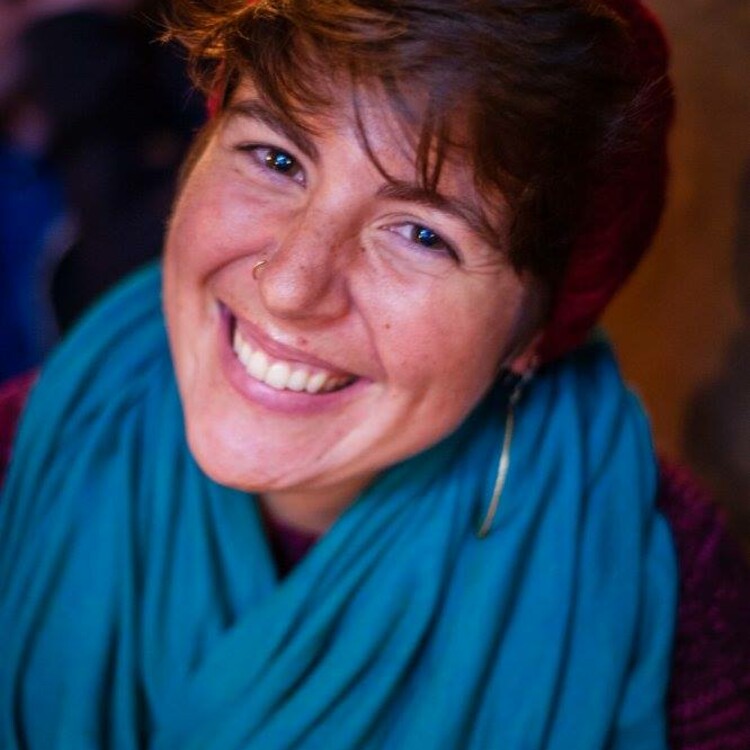
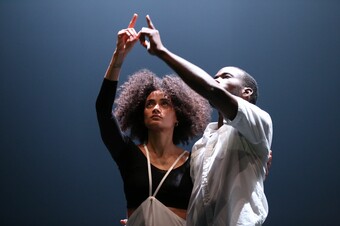





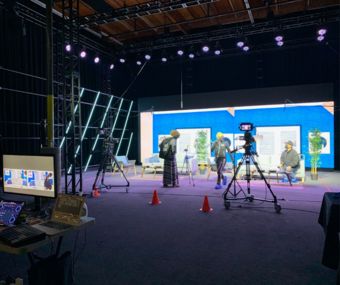



Comments
The article is just the start of the conversation—we want to know what you think about this subject, too! HowlRound is a space for knowledge-sharing, and we welcome spirited, thoughtful, and on-topic dialogue. Find our full comments policy here